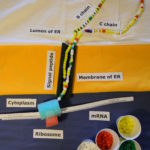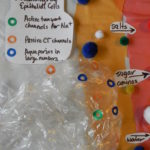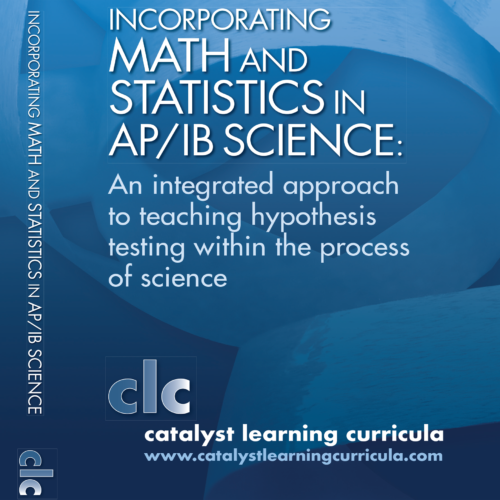Description
Using a holistic constructivist approach, students will examine the delicate control mechanisms that occur inside cells and between cells to maintain a constant supply of energy and how cell signals are used to monitor and regulate organs to provide homeostasis for the entire system. The interaction of insulin and glucagon with various tissues teaches the mechanisms of cell membrane transport, cell communication and regulatory feedback that hold blood sugar levels in a tightly defined range. Students will learn the impact of high blood sugar on the kidneys and other organs and what actions can be taken to avoid irreparable damage. Crossing subject-area boundaries, this case study will impress upon your students that, while there are issues of genetic predisposition that affect metabolism, the actions they take now will have a great impact on their probability of developing diabetes as adults.
The Case Studies for Advanced Science series use an NGSS storyline technique to dive deep into one real-life example of scientific research. Students are confronted with phenomena that intrigues them and sparks inquiry. Activities help them follow the questions that arise, and modeling is used to elucidate the processes of biology, anatomy, physiology and biochemistry, shedding light on patterns and outcomes.
Each case study topic is chosen because it acts as an excellent vehicle to cover the concepts in an AP/IB Biology, Anatomy and Physiology, or Biomedical course with the depth and detail necessary for engaging advanced learners.
The Case Studies for Advanced Science are recommended for:
- IB Biology teachers, as the curricula completely cover the anatomy and physiology, TOK connections and IA practice necessary for the HL Biology course
- A seasoned AP Biology teacher who prefers the holistic approach presented in the “Big Ideas,” in which fundamental processes and concepts are learned while students explore a specific example in depth
- Anatomy and Physiology teachers, who focus on the processes and physiology, structure and function, and the origin and progression of a disease.
- Use in an independent research course guided by initiating activities and foundational concepts that are expanded into the areas of individual student interest
The Case Studies series will be expanded as curricula become available for the following topics:
- Addiction and Depression: A case study approach to understanding the nervous system, the endocrine system and neuropharmacology
- Ants: A case study approach to exploring chemical communication, social structures and symbiosis
- Cancer: A case study approach to health and disease in cell biology and genetics
- Sonoran Desert: A case study approach to understanding interdependent relationships within a dynamic ecosystem




